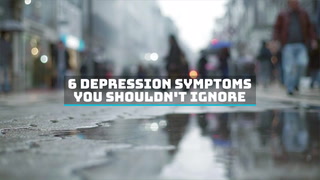Ketamine Makes a Strong Showing in a Study on Severe Depression

Ketamine infusions may work at least as well as electroconvulsive therapy (ECT) for improving symptoms in some people with severe depression, the results of a new study suggest.
“ECT has been the gold standard for treating severe depression for over 80 years,” said the lead study author, Amit Anand, MD, the director of psychiatry translational clinical trials at Mass General Brigham in Boston, in a statement. “But it is also a controversial treatment because it can cause memory loss, requires anesthesia, and is associated with social stigma.”
Dr. Anand and his team set out to compare ECT with ketamine — a surgical anesthetic that was approved by the U.S. Food and Drug Administration (FDA) in 2019 as a nasal spray medication for treatment-resistant depression (depression that is not alleviated by at least two different antidepressant therapies). “This is the largest study comparing ketamine and ECT treatments for depression that has ever been done, and the only one that also measured impacts to memory,” Anand said.
The study included about 400 adults who were diagnosed with treatment-resistant depression. Scientists randomly assigned participants to receive ECT three times weekly or ketamine infusions twice weekly for three weeks.
6 Depression Symptoms You Shouldn't Ignore

Next up video playing in 10 seconds
How Did Ketamine Compare to ECT in Treating Severe Depression?
Overall, 55 percent of people in the ketamine group and 41 percent of those in the ECT group reported at least a 50 percent reduction in depressive symptoms by the end of the study period, the researchers reported May 24 in the New England Journal of Medicine.
The goal of the study was to determine whether ketamine worked at least as well as ECT, and these results suggest this is the case.
In addition, patients in the ECT group experienced memory loss and musculoskeletal effects like seizures, none of which occurred in the ketamine group. During treatment, ketamine did have a side effect of dissociation, when people feel detached from their body, the people around them, or their environment.
One limitation of the new study is that researchers relied on participants to accurately recall and report any changes in the frequency or severity of their depressive symptoms. Participants were also aware of which treatment they received, and this knowledge might have influenced their beliefs about how well the intervention worked.
“ECT is often stigmatized as a treatment option, and there has been a lot of media hype and hope surrounding ketamine’s potential, so it is possible that treatment preference and expectations could have influenced the results,” says Luke Jelen, a neuropharmacology researcher at King’s College London who wasn’t involved in the new study.
Beyond this, the study focused on a subset of patients who have treatment-resistant depression but don’t experience psychotic episodes. ECT is often reserved for individuals who do experience psychosis, and it’s possible that results would be different in these patients, Jelen says.
Better Treatments for Severe Depression Are Urgently Needed
Despite the study’s limitations, its findings suggest that ketamine could help meet an urgent need for better therapies for severe depression. Roughly one-third of people with severe depression who use medications to ease their symptoms don’t get good results from treatment, according to a study in the March 2021 Journal of Clinical Psychiatry.
“Ketamine could potentially be considered a less invasive and more accessible alternative for treatment-resistant depression,” Jelen says. “However, it’s important to note that additional research is needed to confirm these findings and evaluate the long-term effects and safety of ketamine treatment.”
